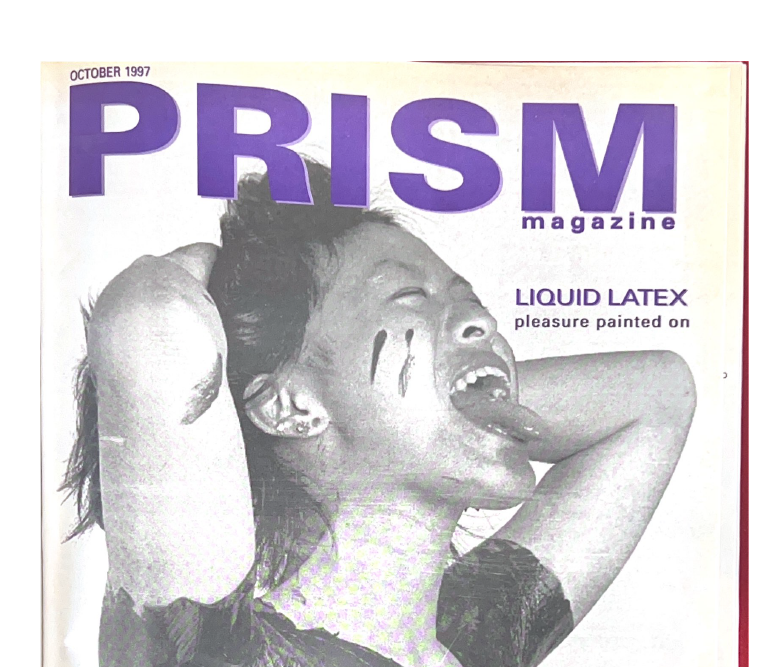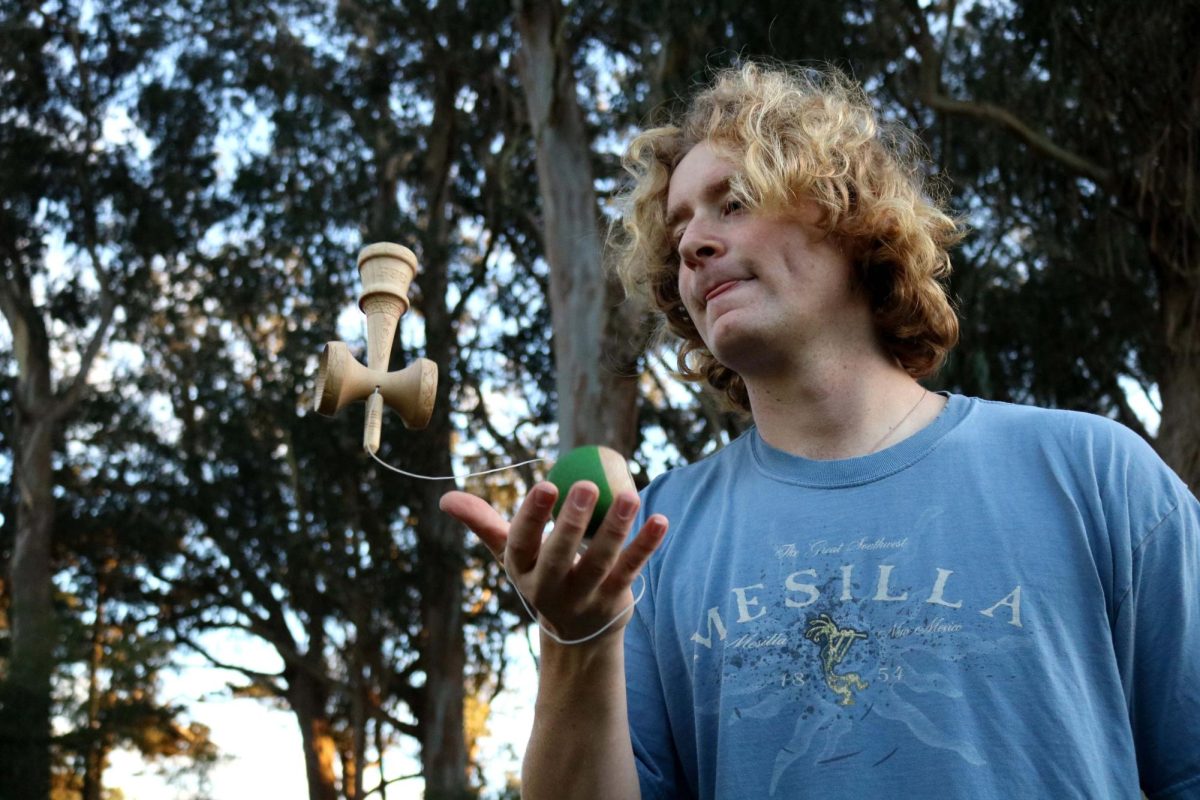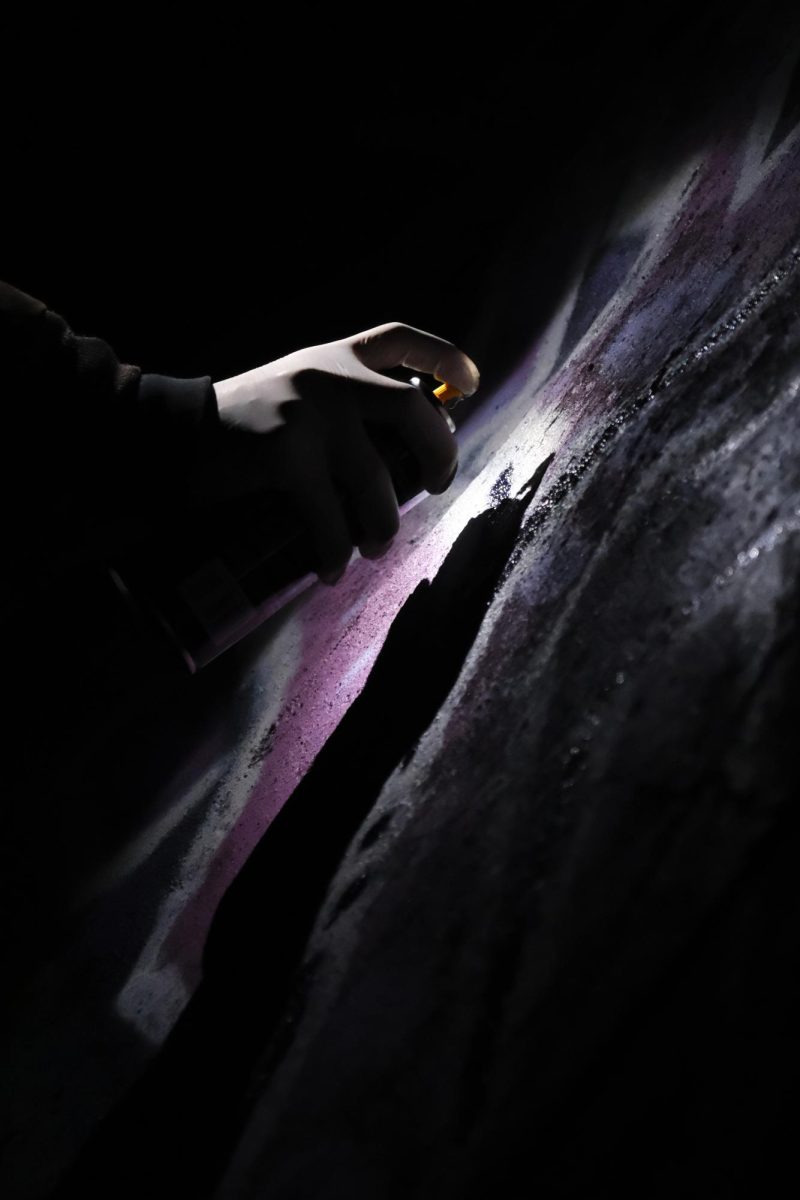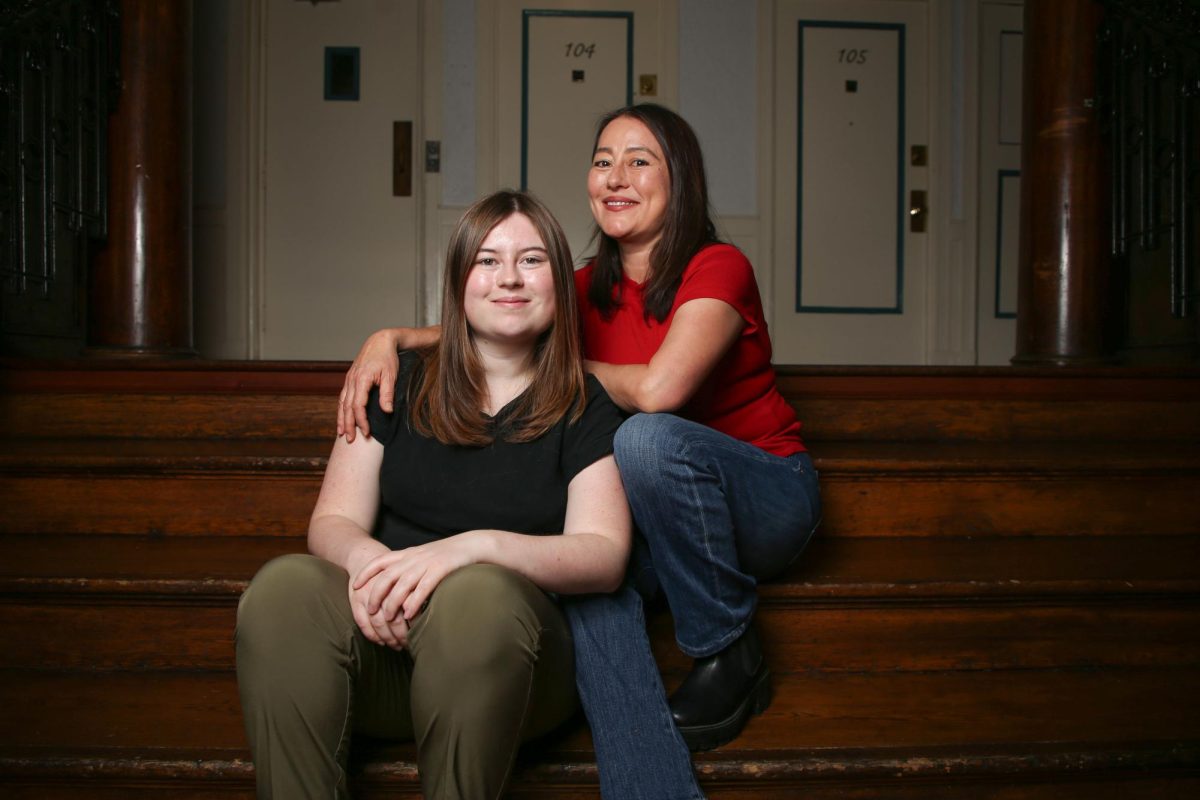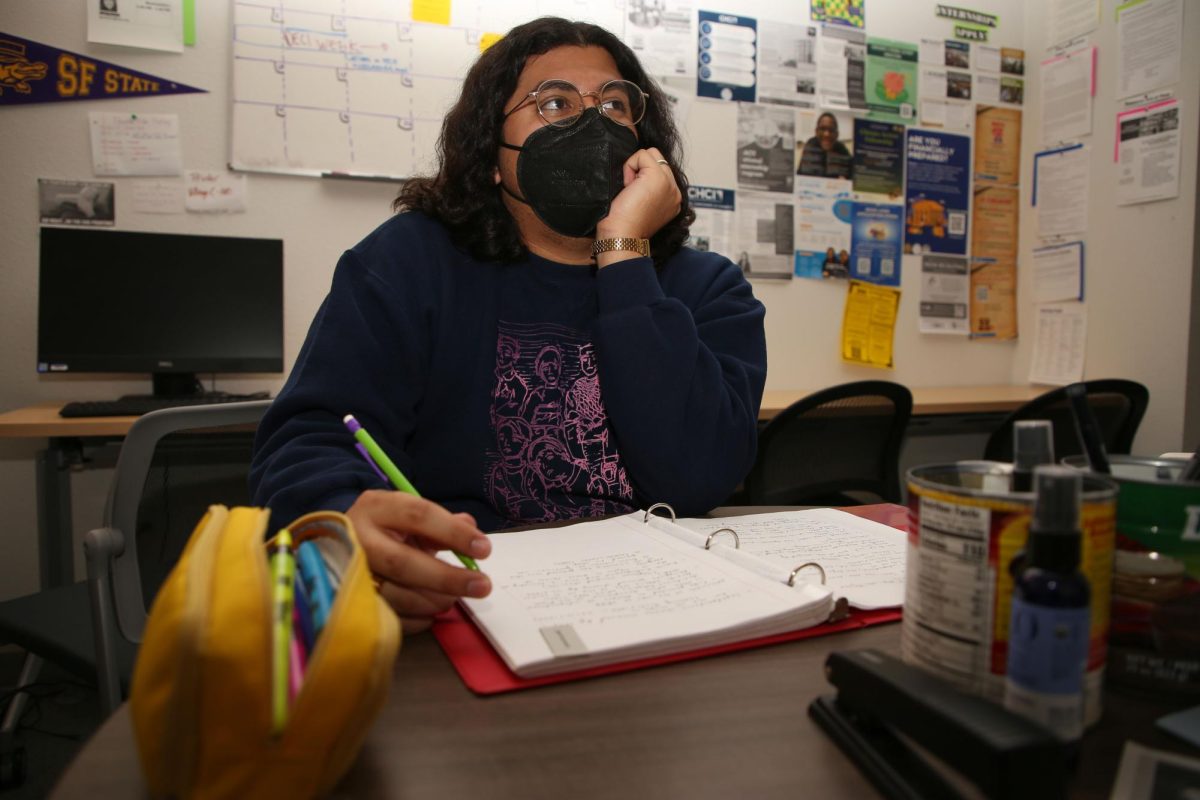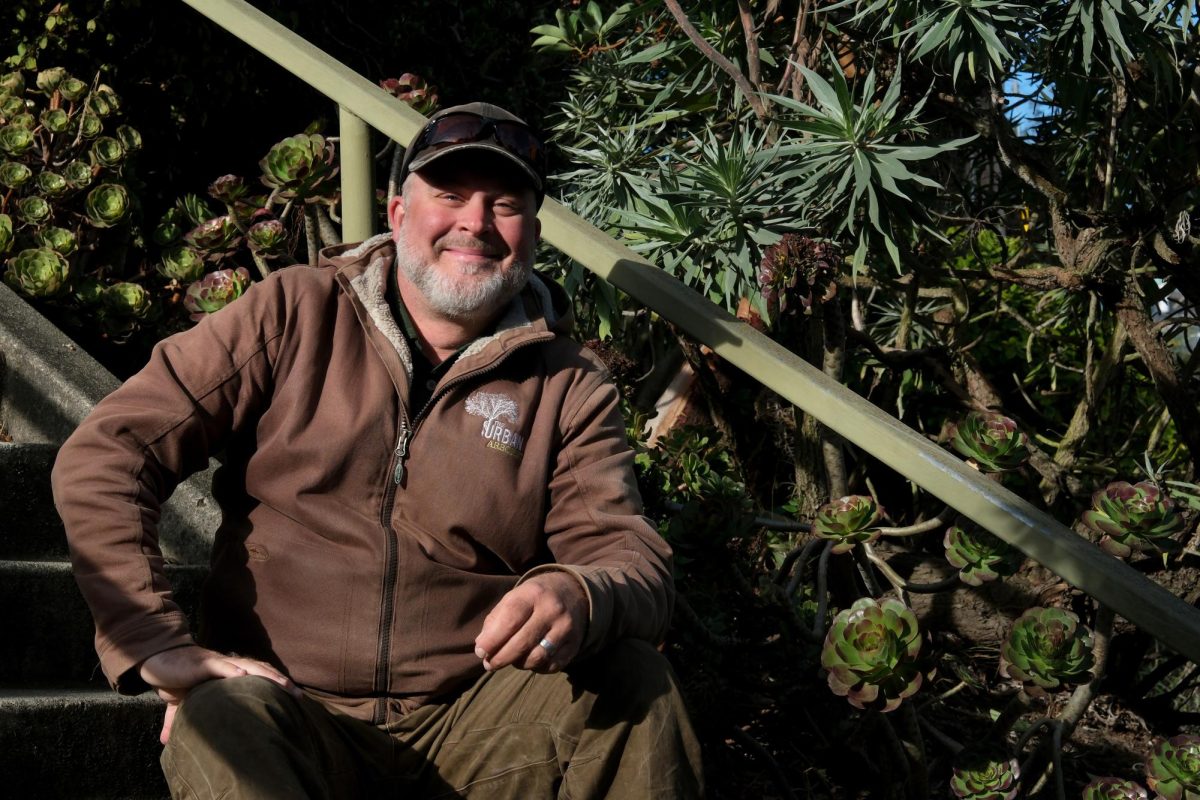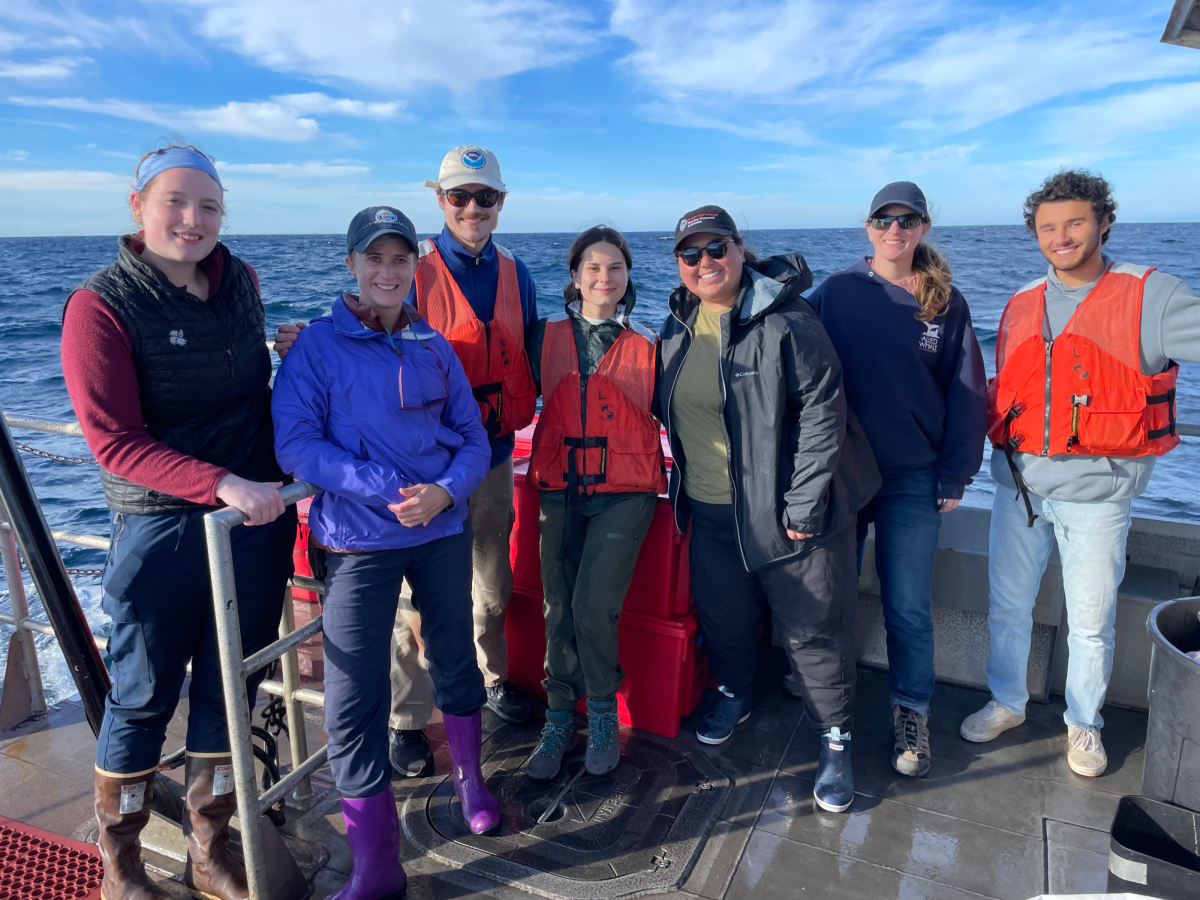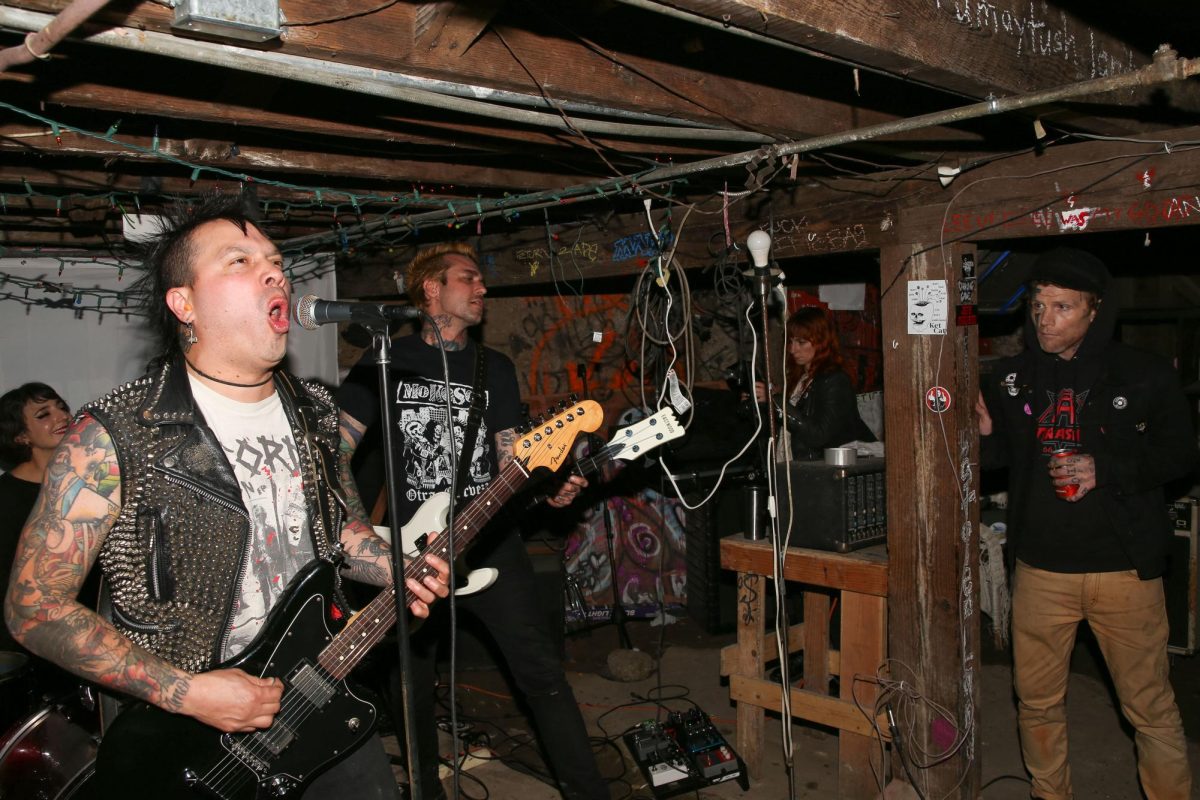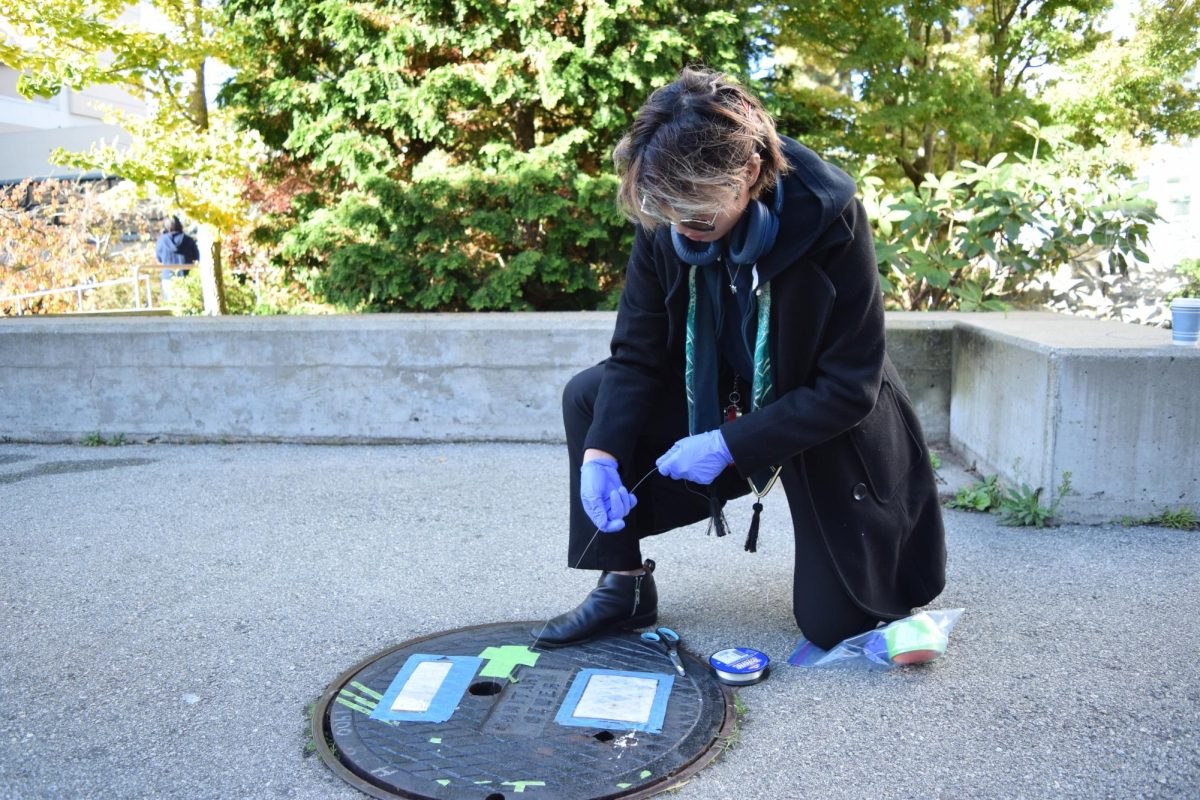Hair stylist Lexi Hernandez prepares model Kelsey Hernandez’s hair before the San Francisco Sustainable Fashion Week Green Glam Fashion Show in San Francisco Friday, Aug. 28, 2015. (Alex Kofman/ Xpress)
By Carlos Mendoza
[dropcap size=”50px”]A[/dropcap]s the room darkened, shades of florescent neon green and blue lights paved the way for a runway and the once loud grand ballroom at San Francisco’s Grand Hyatt fell silent as a woman stepped onto the catwalk. Eyes were fixed on the model’s ethereal rose pink dress which was made of wool with a simple silhouette and matching coat. The anticipation set in as the audience waited for the next look to emerge at the first show of the 2015 San Francisco Sustainable Fashion Week International.
The Green Glam Fashion Show was part of the sustainable fashion week and showcased work from local, national and international designers. This was not merely a fashion show, but rather a statement and supporting bid to a small-scale trend that is financed by a limited market.
Tracy Moreland, a sustainable fashion designer based in the South Bay, displayed her five-piece collection the night of the Green Glam Fashion Show.
“It was all really simple silhouettes and then I just patchworked all the fabrics together to make those dresses,” Moreland said.
The bohemian environmentalist said she uses disregarded materials, that some people may consider ugly, in an eco-friendly manner.
“I really do think that it’s important to use what we do have,” Moreland said. “Use that up and get that out of the landfill.”
Sustainable fashion doesn’t mean that customers have to sacrifice style and creativity according to Moreland. Creating a demand for eco-friendly garments is important for San Francisco and the greater Bay Area, she said.
Tuan Tran, a local sustainable fashion designer, works mainly out of his living room in Potrero Hill. He does not like to identify as a designer, but rather as an artist. Tran, who designs one-of-a-kind dresses in a John Galliano couturier essence, believes that everything he creates with recycled materials represents more of an “art wear” than typical attire.
Tran got his start when a friend challenged him to design a dress with telephone wire, which became the start of his first collection. Four more collections have followed since.
“There are so many beautiful things out there that we don’t really recognize unless we take it, deconstruct it and find beauty out of it,” Tran said.
Tran doesn’t believe in mass producing apparel and prefers to make unique pieces in order to prevent the disregarding of clothes.
“The more we buy, the more we throw away,” Tran said. “The less we consume the better.”
“There are so many beautiful things out there that we don’t really recognize unless we take it, deconstruct it and find beauty out of it,” Tran said.
Working alone and producing elegant gowns can take weeks, sometimes even months. His custom dresses cost anywhere from $1,500 to $7,500 because of the materials and hours of production that go into their creation. Tran believes San Francisco is a leading sustainable city where consumers are looking for eco-friendly clothing.
Sustainable fashion is an emerging market, and according to Dr. Connie Ulasewicz, a professor at San Francisco State University who holds a doctorate in sustainable fashion, the industry is comprised of three domains: people, process and the environment.
The first domain, people, is composed of everyone from the designers to the consumers. Process is the growing, manufacturing and consumption of natural resources. The final domain of the cycle, environment, is the materials that are being used for both manufacturing and consuming.
“You can’t just look at one aspect of this, you have to look at the connection between them,” Ulasewicz said.
According to Ulasewicz, the city of San Francisco throws away 4,500 pounds of textiles every hour and a single person can throw away 65 pounds of textiles on average. All of this waste comes after using up to 2,700 liters of water to make one cotton t-shirt.
Using all of your sources to the very end, plus finding a way to reuse materials is a perfect method when practicing sustainability, according to Ulasewicz. Shopping at big retailers that do not practice sustainability with lower prices can be tempting to consumers, however, Ulasewicz believes it is up to the designers to provide the information.
For Russell Esmus, a local apparel specialist and advocate for sustainable fashion believes working with reusable materials is key. His latest project utilizes reused tablecloths and napkins from hotels to make tote-bags. The stained, misshapened tablecloths in his Mission District studio show what sustainability is all about.
The connection between eco-friendly food and sustainable clothing is apparent to Esmus, he sees the trends going in the same positive direction, with fashion at a slower pace.
“I think we are still 10 years out minimum from a strong consumer awareness,” Esmus said. “It takes people a really long time to understand.”
Esmus said a designer has to go above and beyond just using organic materials and labeling oneself sustainable. He believes that establishing a connection with consumers is a business practice that can help sustainability grow.
“By buying a brand that you feel like you can connect with, that you feel like is a better brand, you are more likely to keep it longer because you have more of a connection with it,” Esmus said.
Although the sustainable fashion industry is gaining traction, it still has a ways to go. The concept has yet to break into the minds of the mainstream consumers, but designers like Tran, Esmus, Moreland and others will continue to provide for the niche market in the Bay Area.


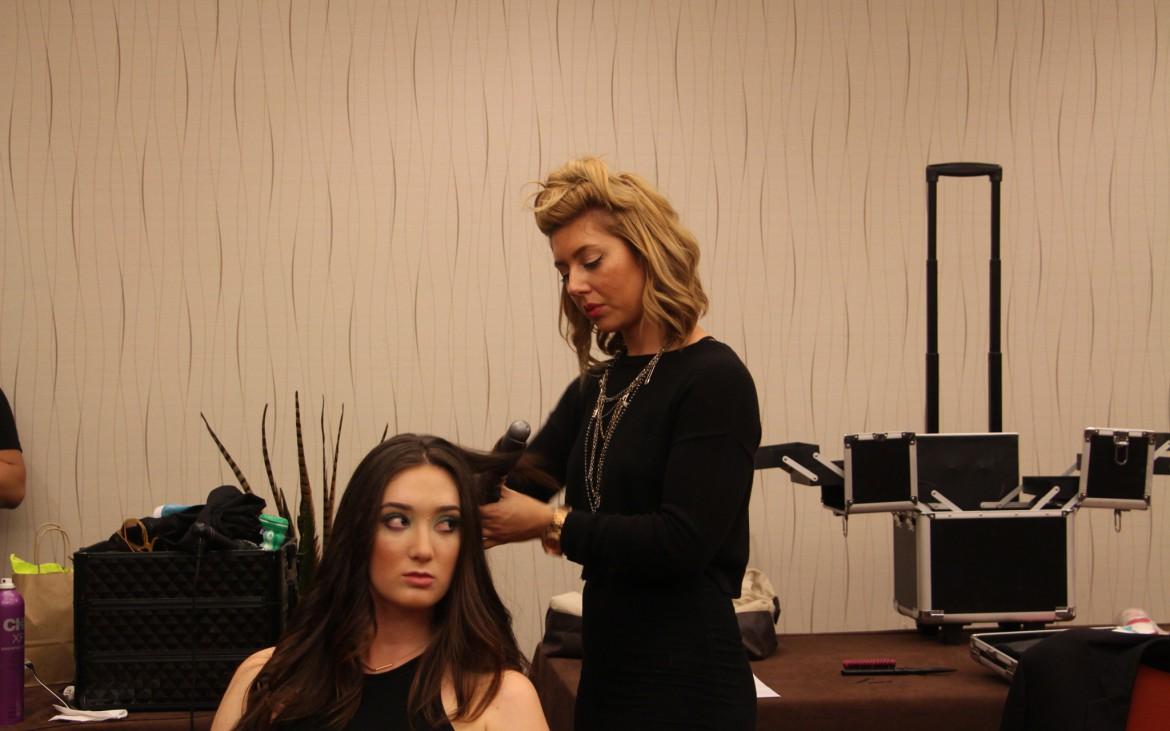

![[From left to right] Joseph Escobedo, Mariana Del Toro, Oliver Elias Tinoco and Rogelio Cruz, Latinx Queer Club officers, introduce themselves to members in the meeting room on the second floor of the Cesar Chavez Student Center.](https://xpressmagazine.org/wp-content/uploads/2024/03/mag_theirown_DH_014-1200x800.jpg)
